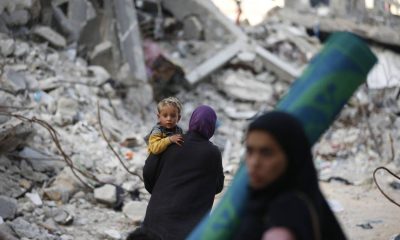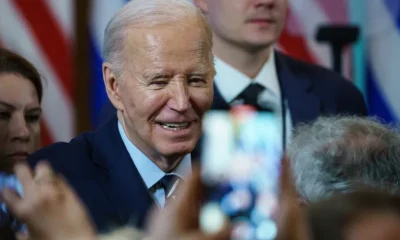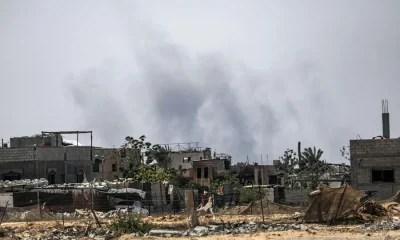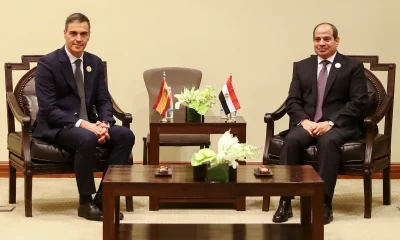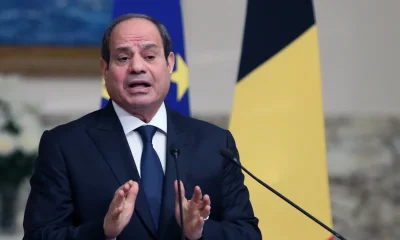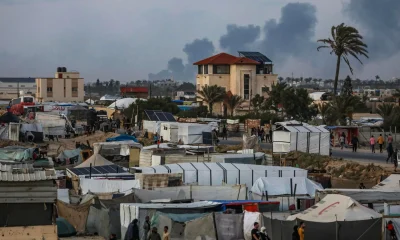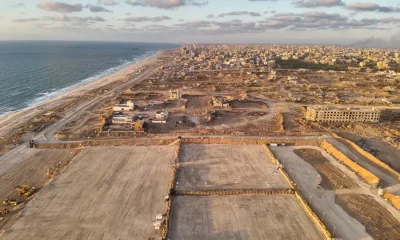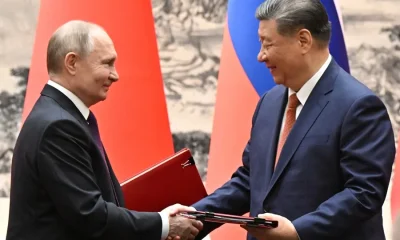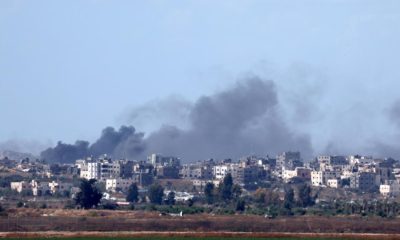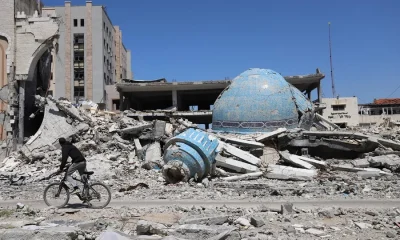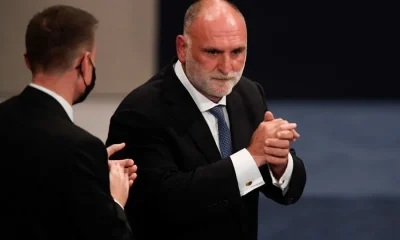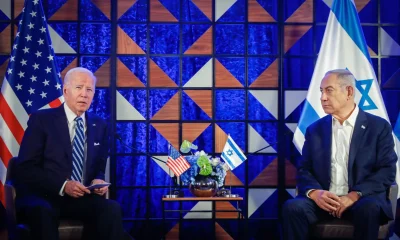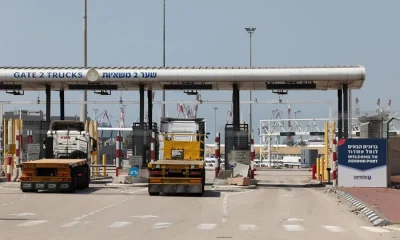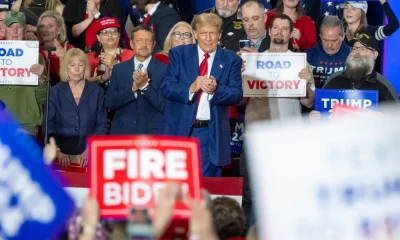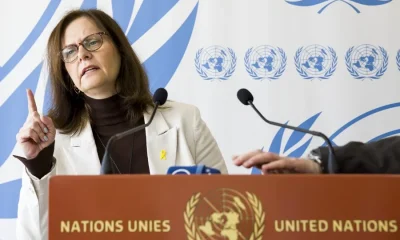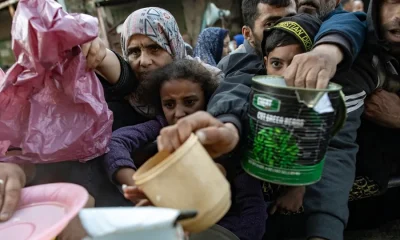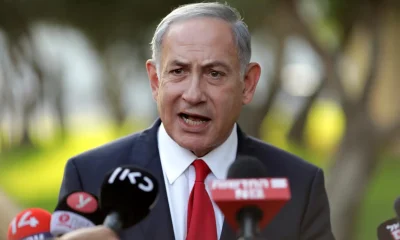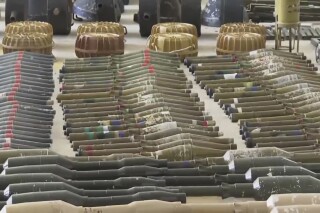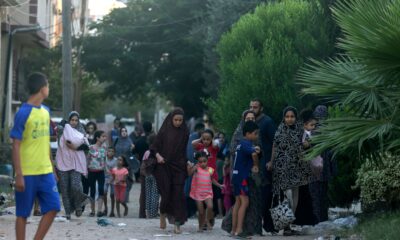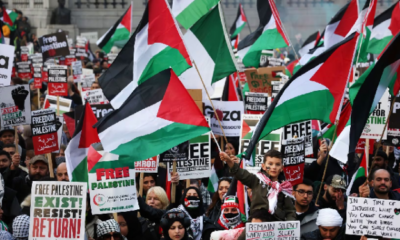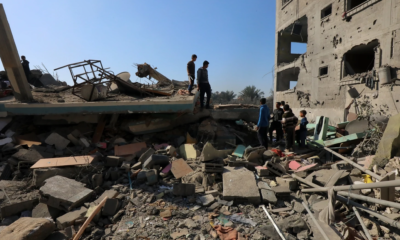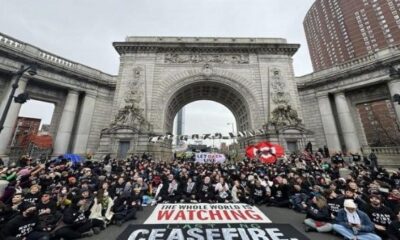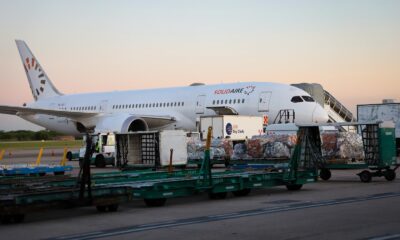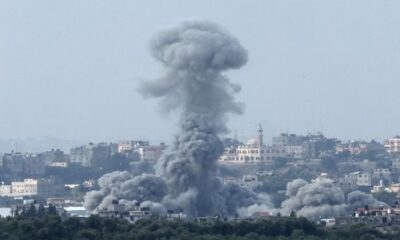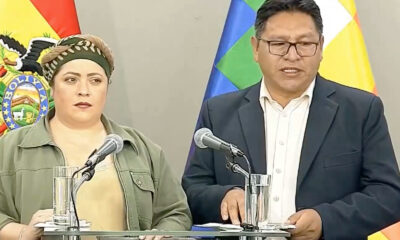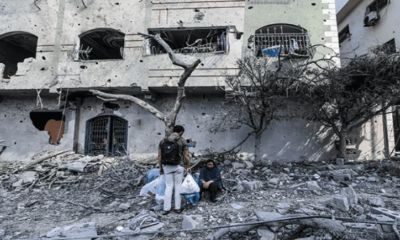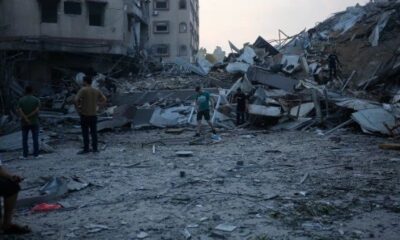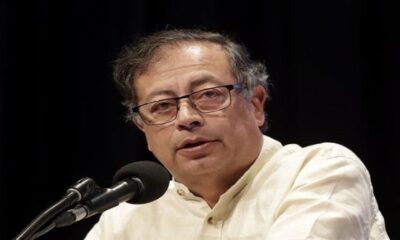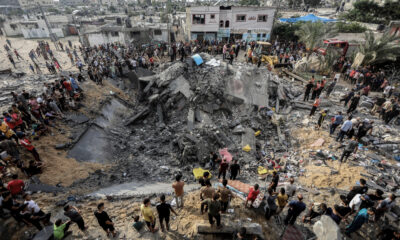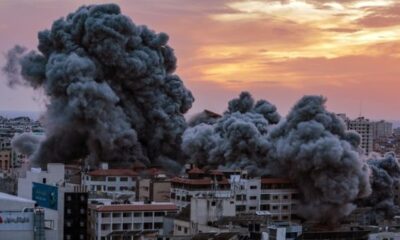International
Jamer Elder, UNICEF spokesman, from Gaza: “Children are as thin as paper”
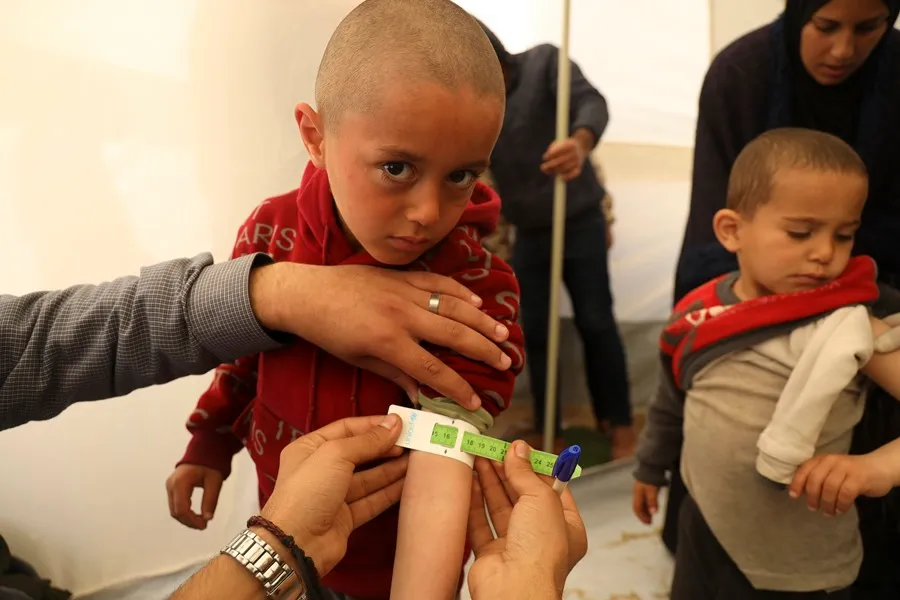
“Children are thin as paper due to malnutrition,” laments James Elder, UNICEF spokesman who is currently in the Gaza Strip, where he has been able to travel north and witness the famine that is already looming over his population and that has claimed the lives of 27 children.
“We are beginning to see how children die of hunger, in the crudest literal sense,” he said in a telephone interview with EFE from Rafah, after having visited the Kamal Adwan hospital, in the north of the enclave, and having contemplated the total devastation in Gaza City or Jan Yunis.
More than twenty babies have died from malnutrition and dehydration in the last month: “Children are as thin as paper, and mothers and grandmothers are tied to their beds, crying, begging them to endure one more day.”
“I have never seen in my 20 years at the United Nations, a place where the nutritional situation has worsened so much in such a short time, to the point where we have caused a famine,” explained Elder, who already entered the Strip last December in the middle of the war between Israel and the Islamist group Hamas.
Last week the UN published a report that establishes that half of the population of the Strip is at “imminent” risk of suffering catastrophic famine, while the enclave does not receive even half of the basic humanitarian aid it needs, much less in the north.
Hunger did not exist in Gaza six months ago and now, one in three children under the age of two suffers acute malnutrition – twice as much as last January – due to a crisis that is worsening at high speed, according to the UNICEF spokesman.
Precisely, the Commissioner General of the UN Agency for Palestinian Refugees (UNRWA), Philippe Lazzarini, denounced yesterday that Israel had communicated to the United Nations that it was not going to authorize more humanitarian convoys from UNRWA – which he accuses without convincing evidence of ties to Hamas – to the north, where hunger is already a reality.
The visit to the Kamal Adwan, in Beit Lahia – in the northern part of the enclave – has been one of the experiences that has most marked this humanitarian worker.
“People’s ability to survive has been destroyed; access to water and food has deteriorated as the bombings have continued. Fewer and fewer hospitals operate at a time when more and more children need medical attention,” Elder summarized about how the situation has worsened since his previous visit inside the enclave.
“The families have had to move again because of the fighting. The stress of leaving even more things behind, moving fewer and fewer belongings. I’ve never seen entire cities crumbled and annihilated,” he adds.
However, Elder sees a glimmer of hope, and that is that famine is “avoidable and reversible” since it has been provoked by man, and can still be solved with political will.
“Opening more ground access routes is a simple first solution,” he said.
At the moment Israel, after subjecting it to exhaustive controls, only allows the entry of humanitarian aid through two of the nine crossings in the Gaza Strip – Kerem Shalom and Rafah, bordering Egypt -, both in the south, so humanitarian agencies need security guarantees to be able to reach the north and convoys have frequently been subjected to attacks, in addition to the destruction of roads.
According to the Government of Gaza, controlled by Hamas, about 560 people have died in attacks on trucks or food warehouses or in incidents related to the distribution of aid, as happened on February 29 in the so-called “flour massacre”, in which 118 Gazans died and more than 700 were injured in a chaotic distribution of aid in Gaza City in which Israel admitted to having opened fire.
Elder acknowledged that the difficulties in distributing aid in the Gaza Strip are endless, nothing compared to the problems in other places of conflict such as Afghanistan, Somalia or Ukraine.
“It’s getting harder and harder to find words to describe what I see,” he lamented.
Central America
Senator Van Hollen Meets with Deported MS-13 Member in El Salvador; Trump and Bukele React

U.S. Democratic Senator Chris Van Hollen, representing the state of Maryland, held a meeting in El Salvador with deported MS-13 gang member Kilmar Ábrego García, a member of the criminal group classified by the U.S. government as a terrorist organization.
“Kilmar Ábrego García, miraculously resurrected from the ‘extermination camps’ and ‘torture chambers,’ now sipping margaritas with Senator Van Hollen in the tropical paradise of El Salvador!” wrote President Nayib Bukeleon X (formerly Twitter), sharing photos of Van Hollen, Ábrego García, and a lawyer sitting together at a Salvadoran hotel.
The deported gang member is seen wearing a plaid shirt and a flat-brimmed cap, seated at a table with glasses and coffee cups. The senator also shared images of the meeting on his own social media accounts.
Bukele reaffirmed that Ábrego will remain in El Salvador and will not be returned to the United States.
“Now that his health has been confirmed, he has earned the honor of remaining under the custody of El Salvador,” Bukele added.
Former U.S. President Donald Trump criticized the senator’s meeting with Ábrego on Truth Social, calling Van Hollen “a fool” for advocating for Ábrego’s return to the U.S.
International
Pope Francis Appears for Easter Blessing, Calls for Peace and Religious Freedom

Pope Francis, still recovering from pneumonia, appeared on the balcony of St. Peter’s Basilica in the Vatican on Easter Sunday and, with a faint voice, wished a “Happy Easter” to the thousands of faithful gathered to celebrate the Resurrection of Christ.
A month after being discharged from a lengthy hospital stay, the presence of the 88-year-old pontiff had remained uncertain, with the Vatican not confirming his attendance ahead of time.
Eventually, the pope made a brief appearance in a wheelchair shortly after 12:00 p.m. (10:00 GMT) to deliver his traditional “Urbi et Orbi” blessing (“to the city and to the world”).
Although no longer wearing an oxygen cannula, the Argentine Jesuit relied on a close aide to read his Easter message, which touched on major global conflicts.
Francis condemned the “dramatic and unworthy humanitarian crisis” in Gaza and called for a ceasefire, while also expressing concern over the “growing climate of antisemitism spreading across the globe.”
He further emphasized the importance of religious freedom and freedom of thought, stating that without mutual respect, “peace is not possible.”
International
Thousands rally nationwide against Trump’s threat to U.S. democracy

Thousands of protesters gathered on Saturday (April 19, 2025) in major cities like New York and Washington, as well as in small communities across the United States, in a second wave of demonstrations against President Donald Trump. The crowds denounced what they view as growing threats to the country’s democratic ideals.
In New York City, demonstrators of all ages rallied in front of the Public Library near Trump Tower, holding signs accusing the president of undermining democratic institutions and judicial independence.
Many protesters also criticized Trump’s hardline immigration policies, including mass deportations and raids targeting undocumented migrants.
“Democracy is in grave danger,” said Kathy Valyi, 73, the daughter of Holocaust survivors. She told AFP that the stories her parents shared about Adolf Hitler’s rise to power in 1930s Germany “are happening here now.”
In Washington, demonstrators voiced concern over what they see as Trump’s disregard for long-standing constitutional norms, such as the right to due process.
-

 International4 days ago
International4 days agoArsenal stun Real Madrid at the Bernabéu to reach Champions League semifinals
-

 Central America3 days ago
Central America3 days agoNicaraguan Exiles to Mark 7th Anniversary of 2018 Protests with Global Commemorations
-

 International3 days ago
International3 days agoDominican ‘False Hero’ Arrested for Faking Role in Nightclub Collapse That Killed 231
-

 International2 days ago
International2 days agoACLU seeks emergency court order to stop venezuelan deportations under Wartime Law
-

 International4 days ago
International4 days agoBogotá residents line up for yellow fever vaccine amid national alert
-

 International4 days ago
International4 days agoDeSantis’ immigration crackdown sparks alarm in Venezuelan Communities in Doral
-

 Central America2 days ago
Central America2 days agoUN complaint filed against Costa Rica over detention of migrant children
-

 International4 days ago
International4 days agoMexico refuses to restore ties with Ecuador while Noboa remains in office
-

 International23 hours ago
International23 hours agoThousands rally nationwide against Trump’s threat to U.S. democracy
-

 Central America5 hours ago
Central America5 hours agoSenator Van Hollen Meets with Deported MS-13 Member in El Salvador; Trump and Bukele React
-

 International5 hours ago
International5 hours agoPope Francis Appears for Easter Blessing, Calls for Peace and Religious Freedom














